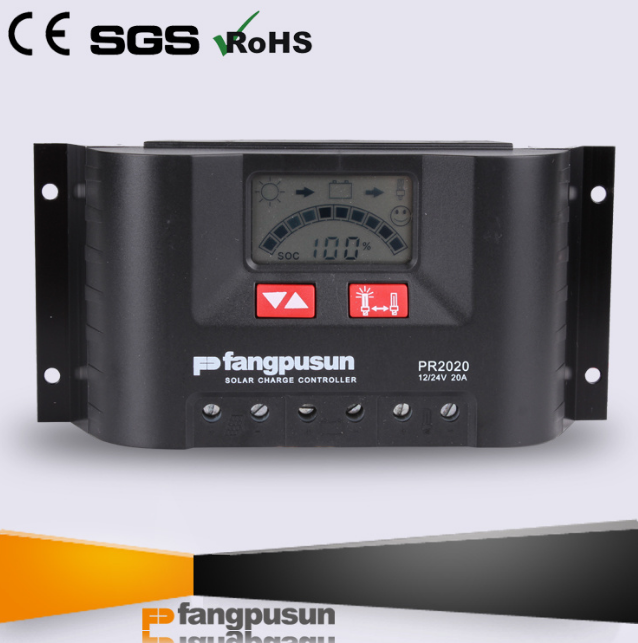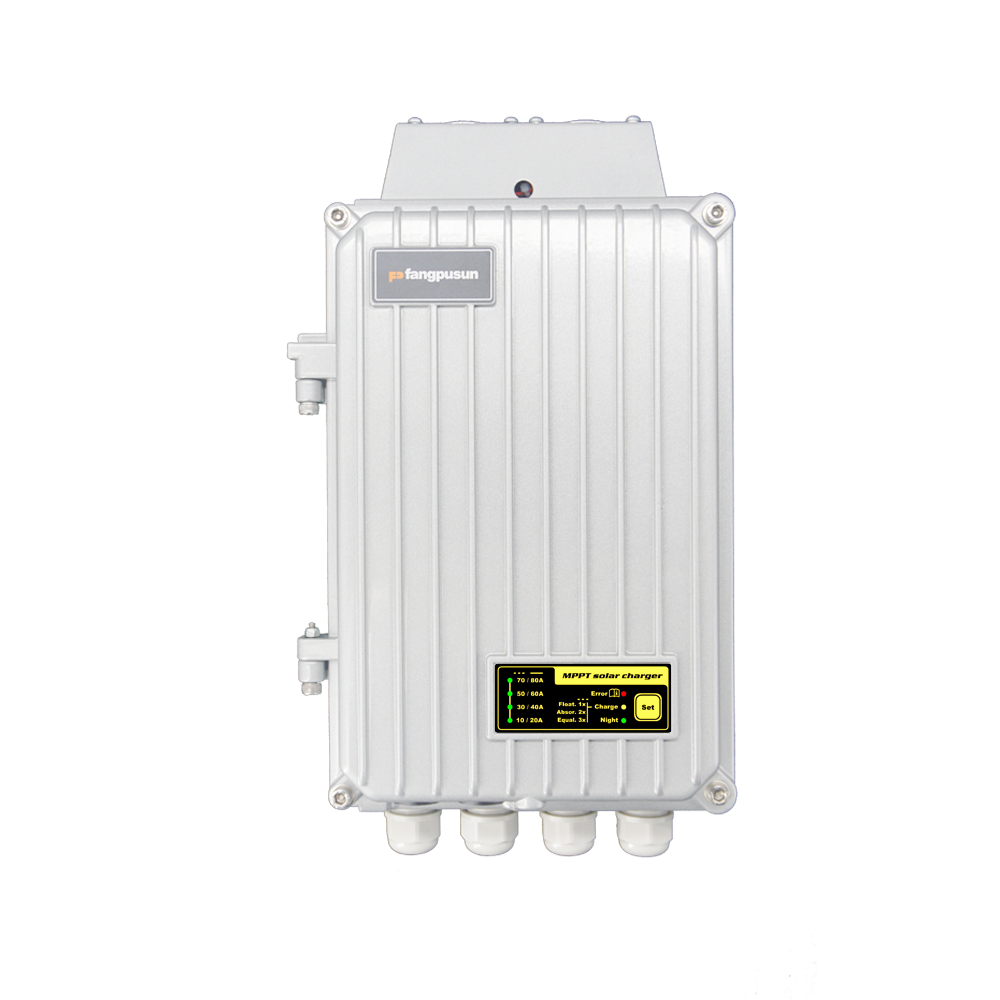BETTER TOUCH BETTER BUSINESS
Contact Sales at Fangpusun.
A solar charge controller is an essential piece of equipment for any off-grid solar system. But with so many different types and features on the market, it can be difficult to know which one is right for you. In this article, we will discuss the differences between MPPT and PWM solar charge controllers, and help you decide which one is best for your needs.
A solar charge controller is a device that regulates the flow of electricity from your solar panels to your batteries. It prevents your batteries from being overcharged by the sun, and also protects them from being discharged too much by allowing you to set a maximum discharge limit.
There are two main types of solar charge controllers: MPPT and PWM. MPPT controllers are more expensive but offer better efficiency, while PWM controllers are cheaper but have lower efficiency.
An MPPT solar charge controller is a type ofcontroller that uses Maximum Power Point Tracking to optimize the power output from your solar panels. It does this by comparing the voltage and current coming from the solar panel to the battery and adjusting the charge rate accordingly. This allows an MPPT controller to extract more power from a solar panel than a PWM controller, making it ideal for systems with limited space or low-power panels.
▶PWM Solar Charge Controller
A PWM solar charge controller is a type of controller that uses Pulse Width Modulation to reduce the amount of power coming from your solar panels. It does this by pulsing the current at a fixed frequency, which allows it to work with most solar panels without causing damage. While not as efficient as an MPPT controller, a PWM controller is cheaper and easier to use, making it a good choice for smaller systems or those on a tight budget.

MPPT and PWM solar charge controllers work by regulating the flow of electricity from your solar panels to your batteries. They do this by controlling two main things: the voltage and the current. Voltage is how much electrical potential or pressure is available, while current is how much electricity is flowing. By controlling these two things, a solar charge controller can keep your batteries from being overcharged or discharged too much.
The main difference between MPPT and PWM solar charge controllers is how they control the voltage and current. MPPT controllers use Maximum Power Point Tracking to adjust the charge rate, while PWM controllers use Pulse Width Modulation to reduce the power output. This makes MPPT controllers more efficient but more expensive, while PWM controllers are cheaper but have lower efficiency.
There are many benefits to using an MPPT or PWM solar charge controller. Some of the most important are:
· Increased Efficiency: An MPPT controller can extract more power from a solar panel than a PWM controller, making it ideal for systems with limited space or low-power panels.
· Protection Against Overcharging: A solar charge controller prevents your batteries from being overcharged by the sun, and also protects them from being discharged too much.
· Easy to Use: A PWM solar charge controller is cheaper and easier to use than an MPPT controller, making it a good choice for smaller systems or those on a tight budget.
· Longer Battery Life: By regulating the flow of electricity from your solar panels, a solar charge controller can help extend the life of your batteries.
· Increased Power Output: A solar charge controller can increase the power output of your solar system by up to 30%.
Solar charge controllers can be used in a variety of applications, including:
· Off-grid solar systems: A solar charge controller is necessary for an off-grid solar system, as it prevents your batteries from being overcharged or discharged too much.
· RV and boat solar systems: Solar charge controllers are often used in RV and boat solar systems to protect the batteries from overcharging.
· Home solar systems: A solar charge controller is a must-have for any home solar system, as it helps keep your batteries healthy and extend their life.
· Commercial solar systems: Solar charge controllers are used in commercial solar systems to regulate the flow of electricity from the panels to the batteries.
· Solar pump systems: A solar charge controller is used in solar pump systems to regulate the flow of electricity from the panels to the pump.
When choosing a solar charge controller, it’s important to decide which type is right for you. If you have a high-power solar panel and a large battery bank, then an MPPT solar charge controller is the best choice. If you have a low-power solar panel or limited space, then a PWM solar charge controller is a better option.
No matter which type of solar charge controller you choose, it’s important to make sure you get one that’s high quality and from a reputable brand. A solar charge controller is an important part of any solar system, so you want to make sure you get one that will work well and last for years to come.
Check out our selection of MPPT and PWM solar charge controllers to find the perfect one for your needs.
This MPPT solar charge controller has a maximum power point tracking voltage of 65V and 80V, making it ideal for larger systems. It features a tracking efficiency of >99%, conversion efficiency of >97%, and a four-step charger for longer battery life.
The VT-65VT-80 also comes with eight predefined battery charge curves as standard, or you can program your own load curve with the RCC-02/-03. It has a low self-consumption of less than one watt in night mode, and protection against incorrect wiring and reverse polarity. The VT-65VT-80 is compliant with European Standards (CE) RoHS compliant and SGS certified.


This PWM solar charge controller is perfect for street lights, as it has a built-in timer that turns the light off during the day and on at night. It features automatic detection of voltage, multistage charging load disconnection, PWM control, monthly maintenance charge, automatic load reconnection, and temperature compensation. The Street Light PWM solar charge controller is compliant with European Standards (CE) RoHS compliant and SGS certified.
A solar charge controller is an important part of any solar system, as it helps keep your batteries healthy and extends their life. When choosing a solar charge controller, it’s important to decide which type is right for you. If you have a high-power solar panel and a large battery bank, then an MPPT solar charge controller is the best choice. If you have a low-power solar panel or limited space, then a PWM solar charge controller is a better option. No matter which type of solar charge controller you choose, it’s important to make sure you get one that’s high quality and from a reputable brand. Check out our selection of MPPT and PWM solar charge controllers to find the perfect one for your needs.
Fangpusun is a professional solar charge controllers manufacturer and supplier, also a famous brand in the international market for MPPT solar charge controllers & PWM solar charge controllers, welcome to contact us for further information.
Copyright © 2021 Wenzhou Xihe Electric Co., LTD| All Rights Reserved